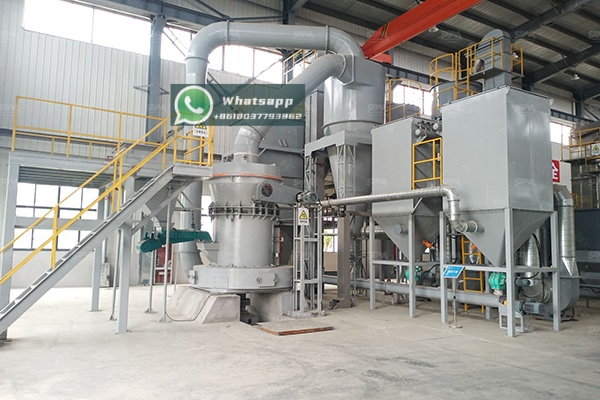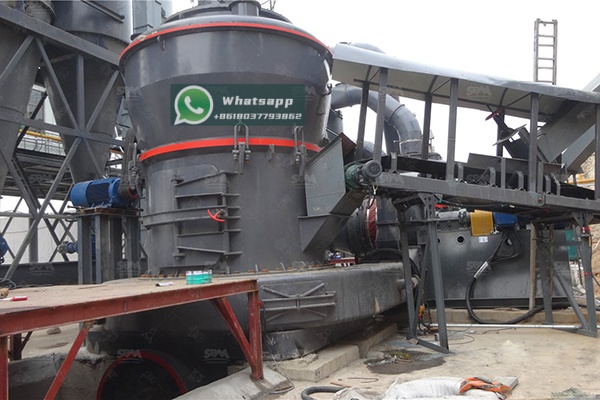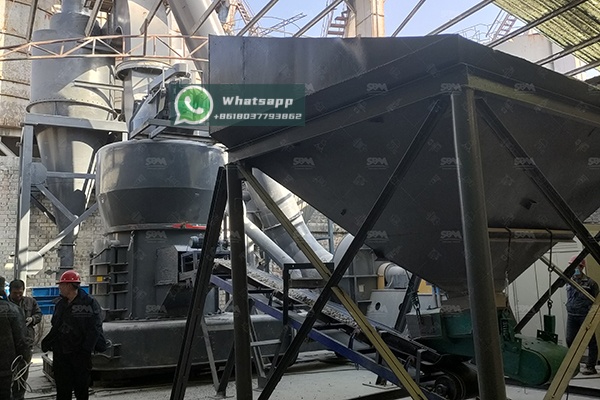Talc, a naturally occurring magnesium silicate mineral, has found significant applications in the agricultural industry as an effective anti-caking agent for fertilizers. When finely ground, talc powder prevents fertilizer particles from adhering to each other, maintaining free-flowing properties that ensure uniform application and distribution. The effectiveness of talc as an anti-caking agent depends critically on its particle size distribution, purity, and surface properties, all of which are determined by the grinding technology employed.

Shanghai Zenith Machinery Co., Ltd., an excellent manufacturer of ore grinding equipment in China, has made great achievements in the field of ultra-fine powder grinding. With specialized research, development, and production of industrial powder grinding equipment, Zenith offers optimal solutions for processing talc to meet the stringent requirements of the fertilizer industry.
For talc to function effectively as a fertilizer anti-caking agent, it must meet specific technical requirements. The ideal talc powder should have a controlled particle size distribution, typically ranging from 45 to 150 microns, with the majority of particles falling within this range. Finer particles provide better coverage and anti-caking performance, while coarser particles may compromise effectiveness.
The grinding process must also preserve the natural lamellar structure of talc, which contributes to its anti-adhesive properties. Additionally, the process should avoid contaminating the talc with iron or other impurities that could affect fertilizer quality or soil health. Thermal degradation during grinding must be minimized to maintain talc’s natural properties.
Raymond Mill technology has proven particularly suitable for grinding talc for fertilizer applications. This grinding system offers several advantages that make it ideal for processing talc to the required specifications:
The working principle of a Raymond Mill involves the material being fed into the grinding chamber where it is subjected to the grinding action between the rollers and the grinding ring. The ground material is then carried by the air stream to the classifier, where oversize particles are separated and returned for further grinding, while the properly sized product is collected in the cyclone collector.

Shanghai Zenith Machinery offers several Raymond Mill models specifically engineered for mineral processing applications like talc grinding. For fertilizer anti-caking agent production, we particularly recommend our YGM9517 model, which provides the optimal balance of capacity, fineness control, and energy efficiency.
| Parameter | Specification |
|---|---|
| Model | YGM9517 |
| Roller Quantity | 4 pieces |
| Max. Feed Size | 25 mm |
| Discharging Size | 1.6-0.045 mm |
| Capacity | 2.1-8 t/h |
| Main Motor Power | 37 kW |
| Classifier Speed | Variable frequency control |
For operations requiring higher capacity or different fineness requirements, our YGM4121 model offers increased production capabilities while maintaining the precise control necessary for quality talc powder production.
Zenith Raymond Mills incorporate several advanced features that make them particularly suitable for grinding talc for fertilizer applications:
The integrated high-efficiency classifier system allows for precise control over the final product fineness, ensuring the talc powder meets the specific requirements for fertilizer anti-caking agents. The adjustable classifier speed enables operators to fine-tune the particle size distribution without stopping production.
Critical wearing parts in Zenith Raymond Mills are manufactured from high-chrome or ceramic materials to minimize iron contamination. This is particularly important for talc used in fertilizers, as iron impurities can affect both the fertilizer’s properties and soil chemistry.
Compared to traditional ball mills or hammer mills, Zenith Raymond Mills offer significantly higher energy efficiency for talc grinding. The unique grinding principle reduces power consumption per ton of product by 20-30% compared to alternative technologies.
The durable construction and optimized wear part design result in extended service intervals and reduced maintenance requirements. The grinding rollers and rings can typically process thousands of tons of talc before requiring replacement.
While Raymond Mills represent an excellent solution for most talc grinding applications in the fertilizer industry, Shanghai Zenith Machinery offers additional technologies that may be suitable for specific requirements:
For applications requiring extremely fine talc powders (below 45 microns), our XZM Ultrafine Grinding Mill provides superior performance. This mill can produce talc powders with fineness ranging from 325 to 2500 mesh, offering exceptional coverage and anti-caking performance for premium fertilizer products.
For large-scale talc processing operations, the LM Vertical Grinding Mill integrates crushing, grinding, powder selection, drying, and material conveying into a single compact unit. This system offers significant space savings and can handle moist talc feed materials without pre-drying.

To achieve optimal results when grinding talc for fertilizer anti-caking agents, several operational parameters should be carefully controlled:
Shanghai Zenith Machinery provides comprehensive technical support to help customers optimize these parameters for their specific talc sources and production requirements.
A major fertilizer producer in Southeast Asia recently implemented a Zenith YGM9517 Raymond Mill for their talc grinding operations. The system processes 5 tons per hour of raw talc into anti-caking agent powder with a controlled particle size distribution between 75 and 150 microns. Key results included:
The selection of appropriate grinding technology is critical for producing high-quality talc powders for fertilizer anti-caking applications. Raymond Mills, particularly the models offered by Shanghai Zenith Machinery, provide an optimal combination of particle size control, production efficiency, and operational economy. The YGM9517 Raymond Mill stands out as an excellent choice for most fertilizer industry applications, offering reliable performance and consistent product quality.
With decades of experience in mineral processing equipment design and manufacturing, Shanghai Zenith Machinery has the expertise to provide tailored solutions for talc grinding applications. Our comprehensive product range and technical support services ensure that customers can achieve their production targets while maintaining the highest quality standards for their fertilizer anti-caking agents.